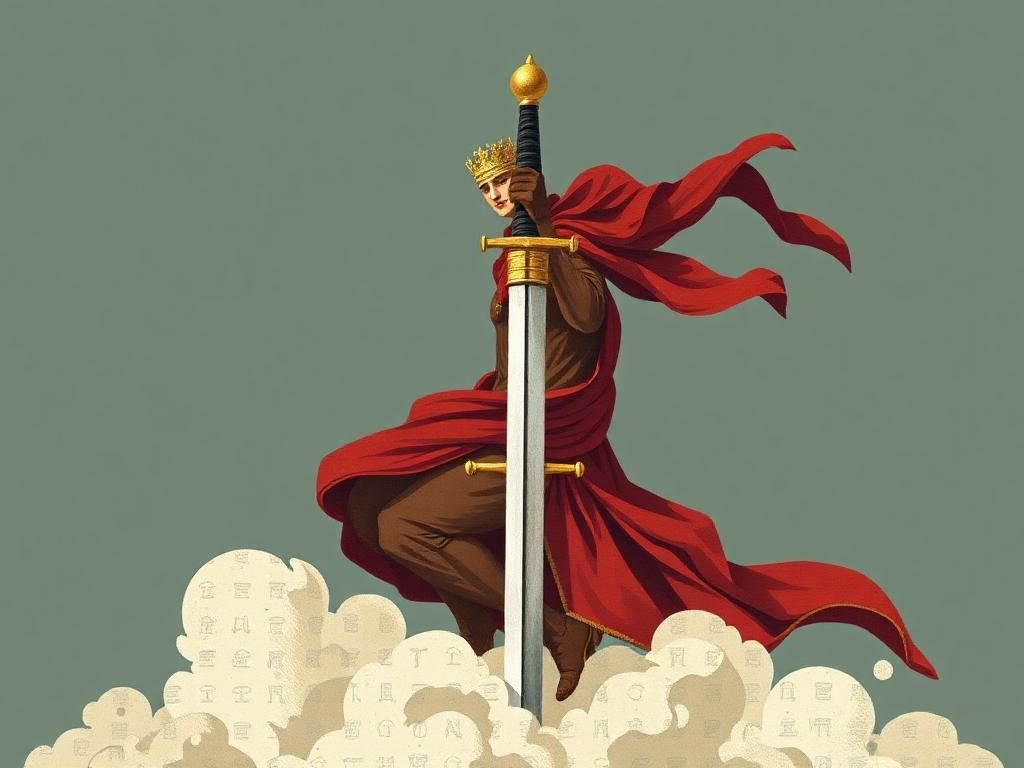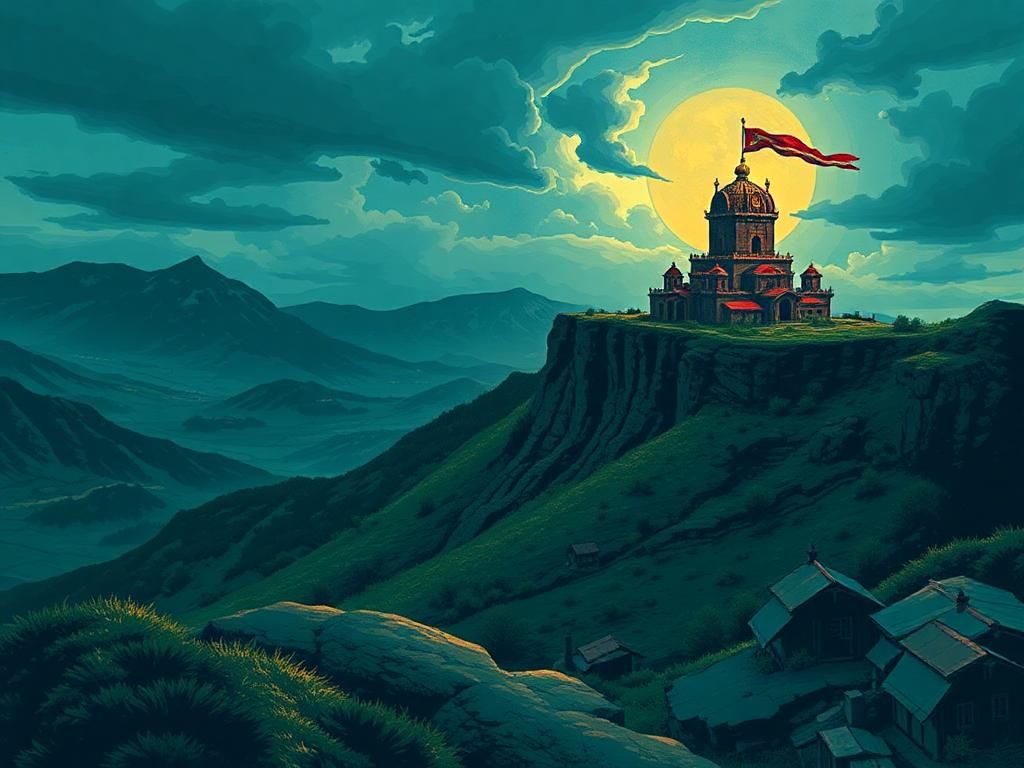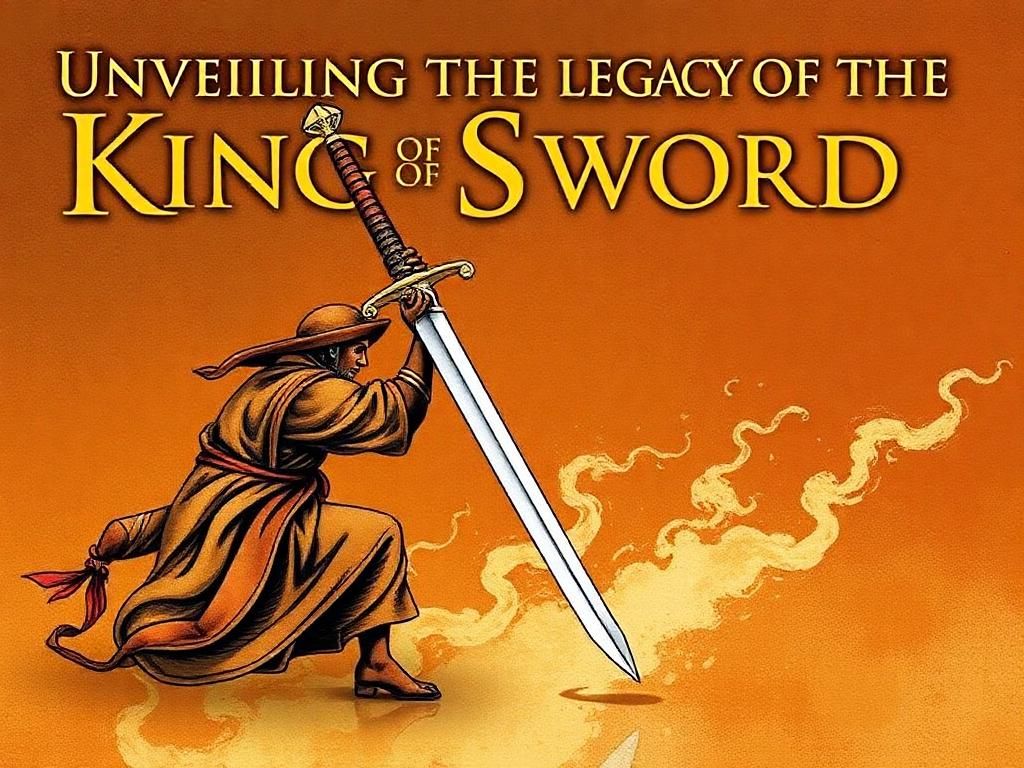In the realm of history, literature, and popular culture, the term “King of the Swords” resonates with power, authority, and martial prowess. This powerful archetype exists across various contexts, from ancient myths to contemporary gaming. The king of the swords is not merely a figure of authority; he symbolizes the link between leadership and mastery over conflict. This article explores the multifaceted dimensions of the King of the Swords, investigating its historical roots, manifestations in literature and gaming, and cultural representations.
Historical Context
The Sword as a Symbol
Throughout history, the sword has served as a potent symbol of warfare and honor. This weapon was not only a tool for battle but also a representation of nobility and prowess. In various civilizations, from the Samurai of Japan to the knights of medieval Europe, swordsmanship was elevated to an art form. Swords played a pivotal role in warfare, shaping nations and destinies. They also became synonymous with personal honor, as warriors sought to master the blade in pursuit of glory.
Kingship and Authority
The connection between swords and authority is deeply embedded in historical contexts. Rulers wielding swords often broadcasted their dominance and claim to power. Historical figures such as King Arthur, famed for wielding Excalibur, embody the essence of the king of the swords. Similarly, Charlemagne utilized his sword not only as a weapon but also as a symbol of his reign over a unified Europe. These instances highlight the profound relationship between swords and kingship throughout history.
King of the Swords in Literature
Mythology and Legends
Literature has long celebrated figures who resonate with the title of king of the swords. In mythology, characters like King Arthur represent the epitome of chivalry and unbeatable valor. Excalibur, Arthur’s legendary sword, is more than just a weapon; it symbolizes rightful kingship and strength. Other mythological tales, such as those of Norse gods wielding their swords, further illustrate this archetype’s prominence.
Contemporary Literature
In modern times, the king of the swords has evolved into various representations within fantasy novels. Works such as The Wheel of Time by Robert Jordan feature characters like Lan Mandragoran, who exemplifies the sword-wielding monarch archetype. These narratives often delve into themes of leadership, sacrifice, and the heavy burden that comes with power.
King of the Swords in Gaming
Video Games

The motif of the king of the swords prominently appears in video games, where characters embody this archetype through gameplay and narrative. Games like Dark Souls and The Legend of Zelda feature heroes equipped with iconic swords, promoting the idea of mastery and skill. For players, embodying a king of the swords means not just combat proficiency but also leadership through strategy and decision-making.
Tabletop Games
Within tabletop role-playing games (RPGs), the king of the swords theme is prevalent, particularly in games like Dungeons & Dragons. Here, swords hold deep significance, often representing the player character’s heritage and aspirations for greatness. Famous campaigns have showcased characters who ascend to this title through trials, embodying the essence of leadership and martial prowess.
| Game Title | Main Character | Sword Title | Theme |
|---|---|---|---|
| Dark Souls | Artorias the Abysswalker | Great Sword of Artorias | Struggle against fate |
| The Legend of Zelda | Link | Master Sword | Destined hero |
| Dungeons & Dragons | Various | Varies | Heroism and choice |
Cultural Representations
Film and Television
The king of the swords trope is also prevalent in film and television. Characters such as Aragorn in The Lord of the Rings embrace this archetype as they wield swords and fulfill their destinies. These portrayals not only engage audiences but also revive interest in the historical relevance of swords in leadership and heroism.
Art and Visual Media
Visual representations of the king of the swords can be found in countless artworks throughout history. From sculptures depicting gladiators to paintings showcasing medieval knights, these artworks encapsulate the grandeur associated with swordsmanship and royal power. The imagery surrounding kings and their swords often serves as a testament to both artistry and the cultural significance of these symbols.
Symbolism of the King of the Swords
Power and Mastery
At its core, the concept of the king of the swords represents an intricate dance of power and mastery. The sword is not merely a weapon but represents the skill and dedication required to wield it. Mastery over the sword echoes the broader theme of personal mastery in leadership—an essential quality in both historical and modern contexts.

The Dual Nature of Swords
Swords embody a duality that reflects the complexities of human nature. They can be instruments of creation, often associated with protection and justice, or agents of destruction when wielded for tyranny. The king of the swords must navigate this moral landscape, making significant choices that affect many, encapsulating the weight of leadership.
Conclusion
The king of the swords is a timeless archetype woven into the fabric of history, literature, and culture. Its significance transcends the mere act of swordsmanship and speaks to broader themes of power, authority, and personal sacrifice. As we reflect on the past and explore future narratives, the enduring legend of the king of the swords remains relevant, continuing to inspire and captivate audiences across generations.
FAQ
1. What does “king of the swords” symbolize?
The term typically signifies authority, mastery in combat, and leadership in various cultural contexts.
2. Who is the most famous “king of the swords” in literature?
King Arthur is often recognized as the most prominent figure associated with the title, especially due to his legendary sword, Excalibur.
3. How do video games feature the “king of the swords” trope?
Many video games have heroes who wield iconic swords, embodying the virtues of skill, strategy, and leadership.
4. What cultures historically valued swords?
Swords have held significant value in various cultures including European knighthood, Feudal Japan, and ancient Middle Eastern societies.
5. What are some key themes associated with the “king of the swords”?
Key themes include power, honor, conflict resolution, and the moral dilemmas faced by leaders.
6. How has the representation of swords evolved in modern media?
Modern media often portrays swords as both weapons and symbols of personal growth and challenges, reflecting deeper narratives about leadership and sacrifice.
7. Are there tabletop games focused on the “king of the swords” concept?
Yes, games like Dungeons & Dragons feature characters known as kings or champions of swords, emphasizing narrative-driven gameplay.
8. What artistic forms depict the “king of the swords”?
Sculptures, paintings, and digital art often represent the drama and heroism associated with swords and kingship.
9. Why are swords considered symbols of authority?
Historically, swords represented both martial prowess and the divine right of kings; they are seen as extensions of power.
10. Will the “king of the swords” remain relevant in future narratives?
Yes, as the archetype evolves, it will continue to inspire stories about leadership, morality, and human struggle across mediums.
